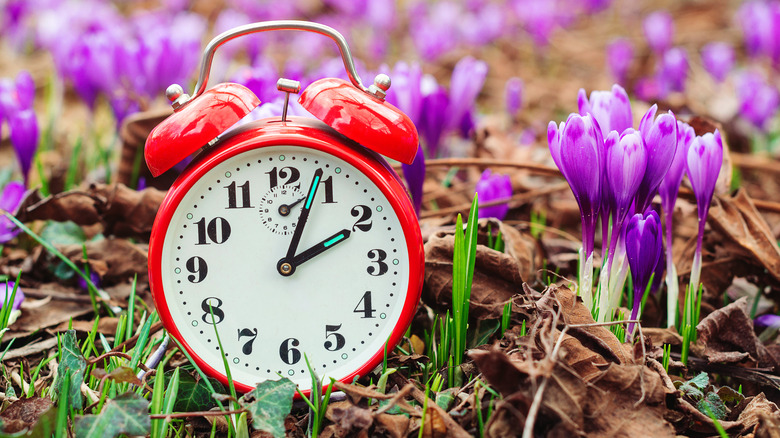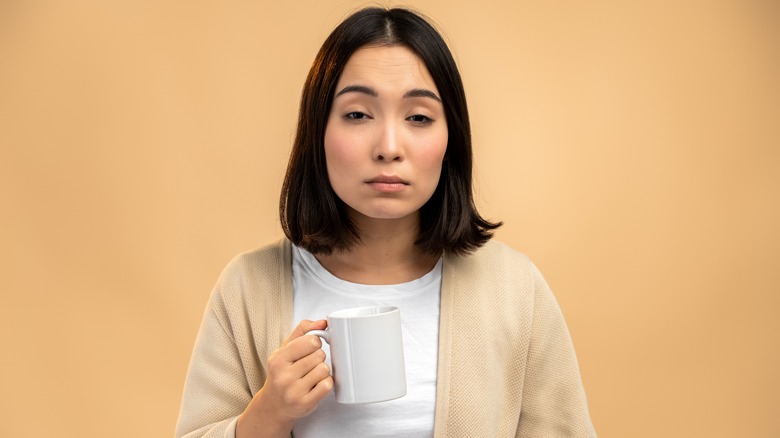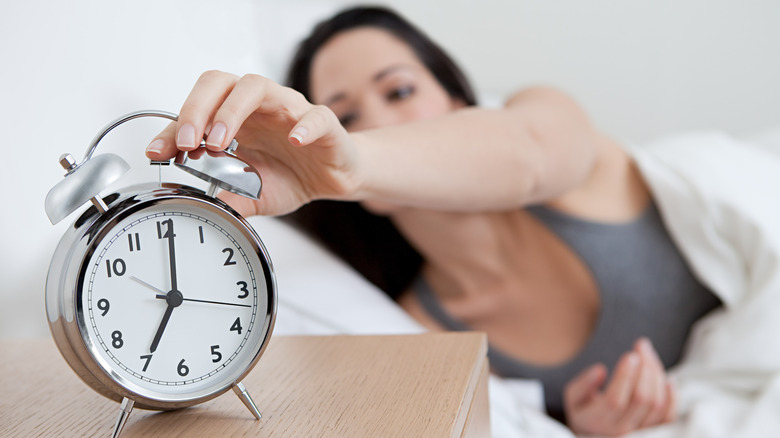How Daylight Saving Affects Your Body, According To A Sleep Expert
It's that time of year again. It happens every spring, yet it still brings out moans in so many of us: daylight saving time. Although it's nice to have a little more light in the evening, losing that hour of sleep is always rough for a few days. In an exclusive interview with Health Digest, Dr. Nilong Vyas, a physician at Sleepless in NOLA and Medical Review Expert at Sleep Foundation, says this loss of sleep can be unhealthy and can increase the risk of car accidents.
"Daylight savings time affects sleep because it is a shift in the sleep cycle from what the body has gotten used to for six months," Vyas said. "Similar to an overseas flight, the body releases sleep-time and wake-time hormones at a particular time. When the clock time is different from what the body is feeling or experiencing, we tend to feel a bit 'off' until the body's hormones re-regulate in a few days."
Vyas adds that this transition is particularly troublesome for people with heart conditions. According to a 2018 article in the European Review for Medical and Pharmacological Sciences, the disruption of sleep and circadian rhythms can cause up to a 29% higher risk of heart attacks.
How daylight saving time disrupts our circadian rhythm
This disruption of our sleep cycles can cause a lot to happen to our bodies. The first two days following the transition to daylight saving time are connected to an increased risk of stroke, according to a 2016 study in Sleep Medicine. According to a 2020 study in the International Journal of Environmental Research and Public Health, the week following the springtime change was associated with a 3% increase in daily deaths. This wasn't the case when we get an extra hour of sleep in the fall.
And let's face it, we all feel a little grumpy when we lose sleep. This can impact our entire week. A 2015 study in the Journal of Happiness Studies found that people in Germany and the United Kingdom felt a slump in their life satisfaction the week following the daylight saving time transition, especially among people with young children. Disrupting our sleep patterns — even in the short term — can increase our stress response, aggravate emotional distress, and impact our cognitive performance, according to a 2017 study in Nature and Science of Sleep.
How we can make the daylight saving transition easier
The U.S. Senate passed a bill, called the Sunshine Protection Act, to end the time transitions and make daylight saving time permanent. However, this bill didn't pass in the House of Representatives, so these semiannual time changes will continue to occur.
Because we know the date of these time changes each year, Vyas tells us we can plan ahead for next year to make the time transition easier. "Many apps and clocks also help the transition by adjusting the hour over a gradual period of days leading up to the time change. The remedy is to ease into the time change by shifting the time you wake and sleep in 15-30 minute increments a few days before the time change so that it is not as jarring for the body when it happens."
Vyas offers some suggestions if we're already feeling the effects of daylight saving time sleep deprivation. "For the Spring DST adjustment, 'spring forward' where the clock moves forward and an hour of sleep is lost, the best remedy is the use of sunlight and/or artificial light," she said. "Having exposure to early morning 'light' without sunglasses is ideal."



